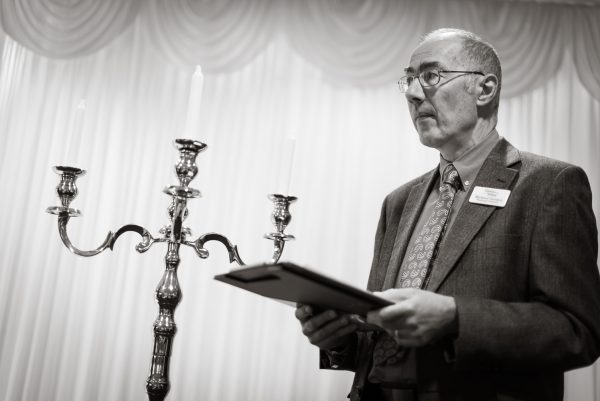
by Michael | Jan 20, 2020 | Blog
You’re getting married? Brilliant! Have you decided who will officiate? Will it be a priest (or equivalent), a registrar or a civil celebrant? Did you even realise that you have a choice?!
[This post is designed for English or Welsh couples, although laws are set to change in the not-too-distant future. Separate rules apply to Scotland and Ireland.]
Religion
If you are
marrying in an Anglican church, this is as simple as it gets. You will be able
to combine religious and legal in one ceremony. The same applies for Jewish and
Quaker weddings.
Otherwise,
you will have to arrange a trip to the register office and to the church before
you can be declared married.
Registrars
The registrars come at the other end of the spectrum to priests, although both services are pretty much standardised. The registrars are not permitted even to mention God or religion. What they do, however, is to pronounce the legal words. Without these being uttered and witnessed, no marriage is valid.
You need to make an appointment with the registrars and go to their office with two witnesses. Or the registrars may come to the venue of your choice (currently, there are restrictions, such as a minimum requirement of four solid walls). Be aware that this will cost you substantially more.
The registrars will offer you a minimum of choice as to the service structure. And their presentation skills can vary wildly!
Celebrants
Until the law changes, civil celebrants cannot marry people legally. They can bless them, conduct a part-religious (or even wholly-religious) service, hand-fast them, get them to sign a marriage certificate afterwards, but none of this makes the marriage legal.
So what
normally happens in these cases is that the couple marries first (at the register
office, unless the registrars come out to their venue). This can be done in a
private room or in front of guests.
When the registrars have left, the civil celebrant can stand up and publicly conduct the personalised ceremony the couple have been dreaming of. It may be religious, or partly so; it may be (partly) humorous; it may contain ritual; active participation may be invited; favourite readings or music may be chosen; it may well be unique to the couple.
At the end, the celebrant may declare the couple legally married (as long as the registrar service has been completed!).
The point is that, by using a celebrant, you have free choice as to the tone and content of your ceremony on your big day.
If you want
any further clarification on this issue, please feel free to contact me.
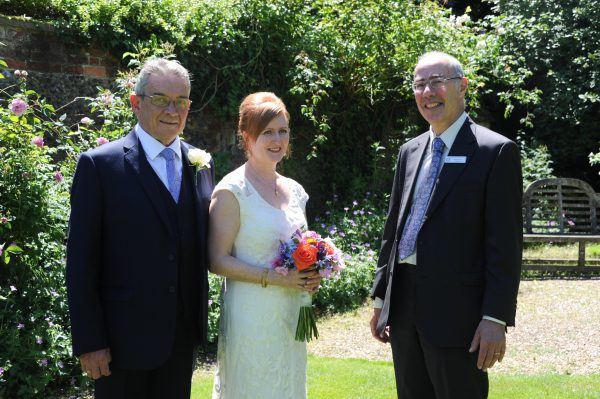
by Michael | Apr 8, 2019 | Blog
A lot of people are choosing to marry later than what was once the norm. The young at heart are stepping into younger people’s shoes!
Reasons for Marrying later
Quite often, the more mature are marrying later for financial or career reasons. Or the couple may want to put off having a family.
Then there are the returnees. They’ve been married before, and, for various reasons, are starting again.
One or both of them may be divorcees. Alternatively, they may have lost their first spouse.
Next, there are those who are afraid of taking such a big step. They don’t want to risk marrying until they are ‘sure’ that the relationship has a good chance of lasting.
Gay couples in a
civil partnership are increasingly looking to convert their legal status to
marriage, and many established pairs are therefore taking advantage.
Should the ceremony
be different?
A church wedding (if permitted) will be the same for an 18- or a 58-year-old. The same can be said for a register office ceremony. These are basically standard ceremonies.
If you’re looking for a tailor-made ceremony, then go for a civil ceremony.
Civil Ceremony
suggestions
By the nature of the
thing, no two civil ceremonies are likely to be the same, so it is impossible
to be prescriptive.
Nevertheless, when approached by couples who are young at heart, I still have the preliminary chat and establish what elements (if any) they have in mind. I make suggestions and then, over time, send over drafts for them to approve.
The areas I am likely
to cover include music, rituals and readings.
- Why shouldn’t older couples enjoy the same sort of music as youngsters (if that’s their choice)? They may choose the same rituals (a Unity Candle is always lovely – but maturer pairs may have families they want to involve, so this ritual can be expanded to include offspring etc.). Either age group may decide to include the offering of a gift, such as a red rose, to their parents during the marriage. A good celebrant will be able to supply suitable suggestions.
Of course, some
rituals (such as ‘jumping the broom’) may be less advisable for more mature
couples!
- There’s no reason why age should prevent couples from writing and/or reciting their vows or having the rings blessed.
- Readings can be whatever the couple want, and many are not age-specific in any way. However, some are suitable for more mature couples. I like this anonymous passage (for couples who are very young at heart!), and I conclude with it:
“The question is
asked: ‘Is there anything more beautiful in life than a young couple clasping
hands and pure hearts in the path of marriage? Can there be anything more
beautiful than young love?’ And the answer is given: ‘Yes, there is a more
beautiful thing. It is the spectacle of an old man and an old woman finishing
their journey together on that path. Their hands are gnarled but still clasped;
their faces are seamed but still radiant; their hearts are physically bowed and
tired but still strong with love and devotion. Yes, there is a more beautiful
thing than young love. Old love.’
For some ideas, please have a look at my YouTube channel (and subscribe!): https://www.youtube.com/channel/UC1wWfxIZw0VpZLbHrJAbV6A?view_as=subscriber
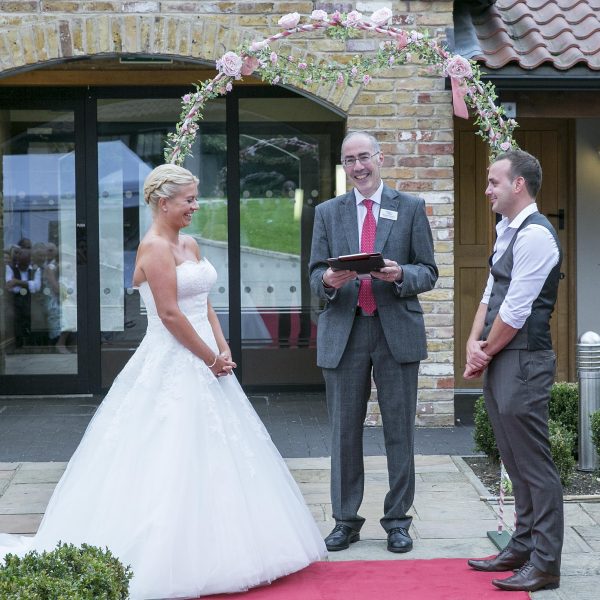
by Michael | Jun 20, 2017 | Blog
Your wedding ceremony should be the most important day of your life. Of course, you want to get it right. But what does it mean, to “get it right”?
There’s a lot of choices out there – possibly, more than you realise.
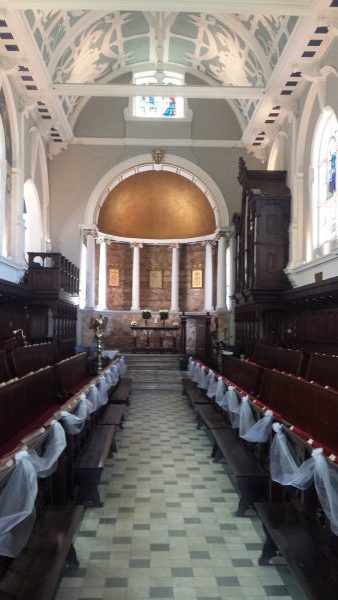
Religious, or not?
In many cases, the first decision you make together is whether or not you want a full religious ceremony. If not, do you want the other extreme? Of course, you can have a fully secular one, but maybe you prefer a mixture?
Anglican
If your choice is a Church of England ceremony, it’s easier if it’s your local church, but you can choose another one. Normally, the Vicar will be able to take you through everything. There’s no need to visit a Register Office either, as everything can be done in one ceremony. The cost of this starts at £456.
Church of Scotland
Church of Scotland ceremonies can take place anywhere and at any time (as long as your minister is in agreement). You don’t need to be a Scottish resident – but you do need to give between 15 days and three months’ notice at the Register Office.
Roman Catholic
You’ll need to take your baptism and confirmation certificates along to your priest at least six months before you wish to marry. If one of you hasn’t been baptised, your priest’s permission will be needed. You’ll be expected to attend marriage preparation classes, and to attend Mass for six weeks before your wedding day. Additionally, you need to go to your local Register Office to give notice and obtain your marriage licence.
Jewish
You will need to apply to the religious authorities and to the local Register Office. A religious ceremony will normally take place in a synagogue, but the rabbi may agree to conduct it elsewhere.
Secular
If you’re certain you want no religion, then you can opt for a humanist wedding. This will not be recognised in law, so you will still need to attend a Register Office ceremony beforehand. You can hold the humanist wedding wherever you wish, and can write your own vows and hire a humanist celebrant.
Just remember, that in a humanist ceremony, there should be no mention at all of God or even religious references, so if that’s a bit too extreme, you may want to consider a civil ceremony.
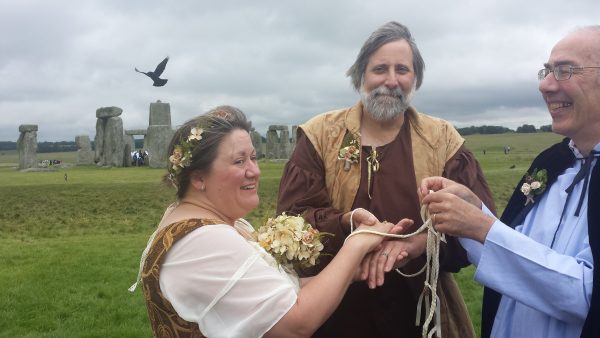 Civil Ceremony
Civil Ceremony
Like the humanist wedding, a civil wedding has no legal validity. It is simply a ceremony that is put together specially, usually by a professional civil celebrant. It should create a fabulous atmosphere and may well reflect the personalities and beliefs of the couple.
You can hold this wherever you like. If it’s in a property licensed for marriages, the registrars can be booked to come out (at an extra charge) and conduct the legal ceremony there. The civil ceremony can follow on straight afterwards. Otherwise, if not in licensed premises, you both need to go to the Register Office beforehand, with two witnesses. (This costs £35.)
Register Office
In addition to the celebrant charge, you will have to pay the registrars for the legal words to be pronounced. To organise this in the first case, go to the local Register Office to give notice. (If you’re not marrying locally, you’ll have to contact that particular Register Office to ensure they have somebody available on your chosen day.)
You’ll need ID, proof of address and nationality, any previous marriage documents and details of your venue. Once issued, the notice will be displayed for 15 days before you can legally marry. Your marriage licence is valid for a year.
You can find your civil celebrant via recommendation, Google – or at this website!
So I hope you see that there are other routes open to you than full religious or humanist. As long as the legal words are said and witnessed properly, everything else can be as original and personalised as you choose. You really can have the day of your dreams!





 Civil Ceremony
Civil Ceremony